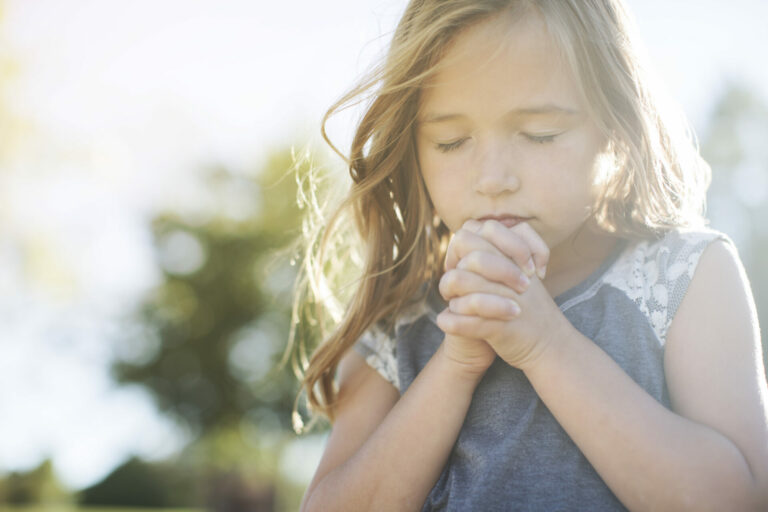When you hear the word “grief”, it is likely that it is promptly followed by the thought of death, sorrow, or mourning. Perhaps it even conjures memories of lost loved ones and your own personal experiences of loss. What happens, though, when you find yourself experiencing all of the emotions and thoughts characterized by grief, but no one died? Or what if someone was lost due to circumstance that those around you would rather not talk about? You may be enduring what is called disenfranchised grief.
To disenfranchise means to deprive someone of a right or privilege. In this case, the individual grieving the loss of a loved one, a relationship, or a sentimental item is deprived of the recognition and support that more traditional grief receives. In other words, “Disenfranchised grief occurs when your loss goes against cultural norms and isn’t seen as valid by those you care about or those in your community” (Cassata, 2021). Additionally, this type of grief is significant because it may exacerbate the typical consequences of bereavement or loss, such as anger, guilt, powerlessness, and ambivalent relationships, while simultaneously reducing support sources (Lynes & Sitoe, 2019). Some examples of loss that may be disenfranchised are:
- Loss or death of a loved one due to suicide
- Loss or death of a loved one due to addiction or substance abuse
- Loss or death of an abusive parent or family member
- Loss of a relationship due to imprisonment
- Grief that lasts longer than culturally accepted (>1-2 years)
While these are some broad and general ways that disenfranchisement shows up in society, there are also innumerable ways that it can occur in foster and adoptive families. Perhaps you are at risk of experiencing disenfranchised grief over losses in your family if you can relate to the following:
- Foster or adoptive child leaving the home through change in level of care
- Foster or adoptive child leaving the home through disruption
- Failed adoption (most typically with infant adoptions)
- Family vision no longer congruent with family reality
- A mother not having a biological connection with her foster or adopted children
- Stillbirth or miscarriage
- Birth children having to adjust to the new family members and “birth order”
- New members causing disruption to normal routine and atmosphere of home
- Birth children affected by the coming and going of foster placements
It is also important to be mindful to the ways that your foster or adopted child may be getting disenfranchised in the grieving process. The following is a short list of some of the losses that your child may be silently grieving:
- Children feeling unwanted or disconnected from birth family
- Children feeling guilt about missing or wanting relationships with birth family
- Children being disconnected from siblings and extended family
- Experiencing loss due to drug addiction/overdose, suicide, or imprisonment
- Death or illness of an abusive or neglectful parent
- Losing important sentimental or security objects (i.e. baby blanket, stuffed animal, clothing, etc.)
- Loss of stable education, friendships, team members, and trusted adults
- Loss of “normal childhood”
While the experience of grief is universal, it is not replicable. Your spouse or child’s grief symptoms may look very similar or drastically different than your own. Because one individual’s expression may be greater or lesser than another’s, it does not necessarily mean that their pain is. Some symptoms of unrecognized or silent grief may appear as:
- Intense feelings of sadness, despair, or loneliness
- Feelings of anger, fear, and guilt
- Feeling numb or nothing at all
- Difficulty concentrating or remembering things and making decisions
- Changes to sleep patterns
- Changes in appetite
- Unexplained physical pain and muscle tension
- Sense of shock or disbelief
- Difficulty connecting with others and maintaining relationships
- Sense of isolation
- Feeling a lack of closure
- Feeling stigmatized, either by others or yourself
- Feeling guilt or shame for your grief or the circumstances of the loss
(Haracutchi, 2021).
Yes, grief can feel overwhelming and heavy AND there is still hope. It’s true that you will not be able to return to the same “you” or life after you experience significant loss, and you may not ever fully “get over it”. As time goes on though, grief has a way of evolving. If we allow it, grief can mold us into fuller, more appreciative and empathetic people for one another and for the kingdom of God. Grief provides a way for us to come to terms with our own humanity, and the Bible tells us that those who grieve are brought close to the heart of God. “The Lord is near to the brokenhearted and saves the crushed in spirit” (Psalm 34:18, ESV). Again, “Blessed be the God and Father of our Lord Jesus Christ, the Father of mercies and God of all comfort, who comforts us in all our affliction, so that we may be able to comfort those who are in any affliction, with the comfort with which we ourselves are comforted by God” (2 Cor. 1:3-4, ESV).
If you or a loved one are currently experiencing disenfranchised grief, there are some ways you can enfranchise yourself and others.
Validate the loss.
Give voice, context and time to the loss. You can do this by journaling or writing poetry and then reading it out loud. When validating a friend or loved one, name the loss directly (i.e. “I am so sorry for the pain you have because of your miscarriage”). If you are doing this with your child, you can do this through story-telling or role-play of how they remember and understand the loss.
Sit in the “ick.”
It’s okay to just “feel the feels”. Give yourself (or your loved one) permission to feel and to be just as you are. Grief is rarely linear, and emotions may not make sense. Look for ways to safely express them through journaling, exercise, listening to music, crying, or talking to a trusted friend or therapist.
Learn and Connect.
Try listening to, watching or reading material about your kind of loss (there are some options listed at the end of this blog post). Connect with others that have gone through similar loss. Identify people in your support network that can offer the types of care that you need.
Remember through ritual.
Create rituals to honor and give meaning to your loss. This may look like celebrating certain significant dates (i.e. birthdays, anniversaries, favorite memories). Maybe you would like to choose a piece of jewelry or clothing as part of your daily or seasonal rituals. If you are helping your child with their loss, see if there are any special meals or music that has positive memories attached. Your rituals are your own and don’t need to follow any sort of tradition or formula.
If you find that you are struggling in your journey through grief, it may be beneficial to seek therapeutic support. There are several therapists at Arizona Family Counseling that specialize in grief and would be honored to walk with you through this difficult time. Remember, there is no right way to “do grief” and what you are experiencing is raw and real and worthy of recognition.
Resources to consider at your personal discretion:
Books:
- Listen: Stories we carry with us from house to house: Stories from foster and adopted youth about their journeys through foster care.
- The Invisible String by Patrice Karst and Joanne Lew-Vriethoff: Children’s book that deals with the child’s experience of loss or separation that occurs as a result of divorce, deployment, or death.
- The Memory Box by Joanna Rowland: Children’s book that helps children and adults alike to cope with the fears of forgetting the lost.
- Wherever You Are My Love Will Find You by Nancy Tillman: Children’s book that speaks to the unconditional love between a parent and child and recognizes that the separation may not be due to death.
- The Rabbit Listened by Cori Doerrfeld: Children’s book that gently explores loss, emotions, and empathy.
- Tear Soup: A Recipe for Healing After Loss by Chuck DeKlyen and Pat Schwiebert: Picture book for children or adults about how a wise old woman copes with loss.
- It’s Okay that You’re Not Okay by Megan Devine: Navigating grief in a society that would rather avoid it.
- A Grief Observed by C.S. Lewis: A diary-style collection of writings on the death of a spouse.
- How it Feels to Float by Helena Fox: Novel about a teen’s journey through grieving the loss of her father and coping with everyday life in her new normal.
- One Hundred Goodbyes: On Addiction, Heartache, Grief and Love by Nicole Anders: Explores a woman’s grief for her brother that overdosed.
- What We Carry by Kalyn Fogerty : Novel inspired by author’s own loss and grief over a miscarriage.
- Girl in Pieces by Kathleen Glasgow : Novel that explores the facets of teen grief for a father’s suicide (trigger warning: involves homelessness and near rape experience).
- The Anatomy of Grief by Dorothy P. Holinger : Nonfiction examination of the impact of grief on the brain, heart and body.
- Modern Loss by Rebecca Soffer and Gabrielle Birkner : Curated stories from bereaved teens and young adults (also an online platform at modernloss.com).
Movies:
- Beautiful Boy: Depiction of a father’s grief over loss of son to overdose after attempting to support his son through addiction and recovery.
- Stepmom: Depicts a broken family that is having to cope with terminal illness and navigating divorce, remarriage, and shared parenting.
- Field of Dreams: Depiction of son’s loss of his father and dealing with regrets about their relationship and eventual reconciliation of difficult emotions.
- Inside Out: Animated film that helps explain emotions for younger audiences. Deals with the difficult emotions children might experience when change occurs.
- We Bought a Zoo: Explores a father’s journey through grief after his wife dies and he is left to raise their children and help his family heal.
Lecturas recomendadas
When you hear the word “grief”, it is likely that it is promptly followed by the thought of death, sorrow, or mourning. Perhaps it even conjures memories of lost loved ones and your own personal experiences of loss. What happens, though, when you find yourself experiencing all of the emotions and thoughts characterized by grief, but no one died? Or what if someone was lost due to circumstance that those around you would rather not talk about? You may be enduring what is called disenfranchised grief.
To disenfranchise means to deprive someone of a right or privilege. In this case, the individual grieving the loss of a loved one, a relationship, or a sentimental item is deprived of the recognition and support that more traditional grief receives. In other words, “Disenfranchised grief occurs when your loss goes against cultural norms and isn’t seen as valid by those you care about or those in your community” (Cassata, 2021). Additionally, this type of grief is significant because it may exacerbate the typical consequences of bereavement or loss, such as anger, guilt, powerlessness, and ambivalent relationships, while simultaneously reducing support sources (Lynes & Sitoe, 2019). Some examples of loss that may be disenfranchised are:
- Loss or death of a loved one due to suicide
- Loss or death of a loved one due to addiction or substance abuse
- Loss or death of an abusive parent or family member
- Loss of a relationship due to imprisonment
- Grief that lasts longer than culturally accepted (>1-2 years)
While these are some broad and general ways that disenfranchisement shows up in society, there are also innumerable ways that it can occur in foster and adoptive families. Perhaps you are at risk of experiencing disenfranchised grief over losses in your family if you can relate to the following:
- Foster or adoptive child leaving the home through change in level of care
- Foster or adoptive child leaving the home through disruption
- Failed adoption (most typically with infant adoptions)
- Family vision no longer congruent with family reality
- A mother not having a biological connection with her foster or adopted children
- Stillbirth or miscarriage
- Birth children having to adjust to the new family members and “birth order”
- New members causing disruption to normal routine and atmosphere of home
- Birth children affected by the coming and going of foster placements
It is also important to be mindful to the ways that your foster or adopted child may be getting disenfranchised in the grieving process. The following is a short list of some of the losses that your child may be silently grieving:
- Children feeling unwanted or disconnected from birth family
- Children feeling guilt about missing or wanting relationships with birth family
- Children being disconnected from siblings and extended family
- Experiencing loss due to drug addiction/overdose, suicide, or imprisonment
- Death or illness of an abusive or neglectful parent
- Losing important sentimental or security objects (i.e. baby blanket, stuffed animal, clothing, etc.)
- Loss of stable education, friendships, team members, and trusted adults
- Loss of “normal childhood”
While the experience of grief is universal, it is not replicable. Your spouse or child’s grief symptoms may look very similar or drastically different than your own. Because one individual’s expression may be greater or lesser than another’s, it does not necessarily mean that their pain is. Some symptoms of unrecognized or silent grief may appear as:
- Intense feelings of sadness, despair, or loneliness
- Feelings of anger, fear, and guilt
- Feeling numb or nothing at all
- Difficulty concentrating or remembering things and making decisions
- Changes to sleep patterns
- Changes in appetite
- Unexplained physical pain and muscle tension
- Sense of shock or disbelief
- Difficulty connecting with others and maintaining relationships
- Sense of isolation
- Feeling a lack of closure
- Feeling stigmatized, either by others or yourself
- Feeling guilt or shame for your grief or the circumstances of the loss
(Haracutchi, 2021).
Yes, grief can feel overwhelming and heavy AND there is still hope. It’s true that you will not be able to return to the same “you” or life after you experience significant loss, and you may not ever fully “get over it”. As time goes on though, grief has a way of evolving. If we allow it, grief can mold us into fuller, more appreciative and empathetic people for one another and for the kingdom of God. Grief provides a way for us to come to terms with our own humanity, and the Bible tells us that those who grieve are brought close to the heart of God. “The Lord is near to the brokenhearted and saves the crushed in spirit” (Psalm 34:18, ESV). Again, “Blessed be the God and Father of our Lord Jesus Christ, the Father of mercies and God of all comfort, who comforts us in all our affliction, so that we may be able to comfort those who are in any affliction, with the comfort with which we ourselves are comforted by God” (2 Cor. 1:3-4, ESV).
If you or a loved one are currently experiencing disenfranchised grief, there are some ways you can enfranchise yourself and others.
Validate the loss.
Give voice, context and time to the loss. You can do this by journaling or writing poetry and then reading it out loud. When validating a friend or loved one, name the loss directly (i.e. “I am so sorry for the pain you have because of your miscarriage”). If you are doing this with your child, you can do this through story-telling or role-play of how they remember and understand the loss.
Sit in the “ick.”
It’s okay to just “feel the feels”. Give yourself (or your loved one) permission to feel and to be just as you are. Grief is rarely linear, and emotions may not make sense. Look for ways to safely express them through journaling, exercise, listening to music, crying, or talking to a trusted friend or therapist.
Learn and Connect.
Try listening to, watching or reading material about your kind of loss (there are some options listed at the end of this blog post). Connect with others that have gone through similar loss. Identify people in your support network that can offer the types of care that you need.
Remember through ritual.
Create rituals to honor and give meaning to your loss. This may look like celebrating certain significant dates (i.e. birthdays, anniversaries, favorite memories). Maybe you would like to choose a piece of jewelry or clothing as part of your daily or seasonal rituals. If you are helping your child with their loss, see if there are any special meals or music that has positive memories attached. Your rituals are your own and don’t need to follow any sort of tradition or formula.
If you find that you are struggling in your journey through grief, it may be beneficial to seek therapeutic support. There are several therapists at Arizona Family Counseling that specialize in grief and would be honored to walk with you through this difficult time. Remember, there is no right way to “do grief” and what you are experiencing is raw and real and worthy of recognition.
Resources to consider at your personal discretion:
Books:
- Listen: Stories we carry with us from house to house: Stories from foster and adopted youth about their journeys through foster care.
- The Invisible String by Patrice Karst and Joanne Lew-Vriethoff: Children’s book that deals with the child’s experience of loss or separation that occurs as a result of divorce, deployment, or death.
- The Memory Box by Joanna Rowland: Children’s book that helps children and adults alike to cope with the fears of forgetting the lost.
- Wherever You Are My Love Will Find You by Nancy Tillman: Children’s book that speaks to the unconditional love between a parent and child and recognizes that the separation may not be due to death.
- The Rabbit Listened by Cori Doerrfeld: Children’s book that gently explores loss, emotions, and empathy.
- Tear Soup: A Recipe for Healing After Loss by Chuck DeKlyen and Pat Schwiebert: Picture book for children or adults about how a wise old woman copes with loss.
- It’s Okay that You’re Not Okay by Megan Devine: Navigating grief in a society that would rather avoid it.
- A Grief Observed by C.S. Lewis: A diary-style collection of writings on the death of a spouse.
- How it Feels to Float by Helena Fox: Novel about a teen’s journey through grieving the loss of her father and coping with everyday life in her new normal.
- One Hundred Goodbyes: On Addiction, Heartache, Grief and Love by Nicole Anders: Explores a woman’s grief for her brother that overdosed.
- What We Carry by Kalyn Fogerty : Novel inspired by author’s own loss and grief over a miscarriage.
- Girl in Pieces by Kathleen Glasgow : Novel that explores the facets of teen grief for a father’s suicide (trigger warning: involves homelessness and near rape experience).
- The Anatomy of Grief by Dorothy P. Holinger : Nonfiction examination of the impact of grief on the brain, heart and body.
- Modern Loss by Rebecca Soffer and Gabrielle Birkner : Curated stories from bereaved teens and young adults (also an online platform at modernloss.com).
Movies:
- Beautiful Boy: Depiction of a father’s grief over loss of son to overdose after attempting to support his son through addiction and recovery.
- Stepmom: Depicts a broken family that is having to cope with terminal illness and navigating divorce, remarriage, and shared parenting.
- Field of Dreams: Depiction of son’s loss of his father and dealing with regrets about their relationship and eventual reconciliation of difficult emotions.
- Inside Out: Animated film that helps explain emotions for younger audiences. Deals with the difficult emotions children might experience when change occurs.
- We Bought a Zoo: Explores a father’s journey through grief after his wife dies and he is left to raise their children and help his family heal.
Lecturas recomendadas
References
Cassata, C. (2021, July 28). Disenfranchised grief: Causes and how to manage and validate it. Psych Central. Retrieved September 23, 2021, from https://psychcentral.com/health/disenfranchised-grief.
Haragutchi, H. (2021, February 4). Disenfranchised grief: How to cope & when to get help. Retrieved September 23, 2021, from https://www.choosingtherapy.com/disenfranchised-grief/.
Lynes, D., & Sitoe, A. (2019). Disenfranchised grief: the emotional impact experienced by foster carers on the cessation of a placement. Adoption & Fostering, 43(1), 22–34. https://doi.org/10.1177/0308575918823433
References
Cassata, C. (2021, July 28). Disenfranchised grief: Causes and how to manage and validate it. Psych Central. Retrieved September 23, 2021, from https://psychcentral.com/health/disen-franchised-grief.
Haragutchi, H. (2021, February 4). Disenfranchised grief: How to cope & when to get help. Retrieved September 23, 2021, from https://www.choosingtherapy.com/disen-franchised-grief/.
Lynes, D., & Sitoe, A. (2019). Disenfranchised grief: the emotional impact experienced by foster carers on the cessation of a placement. Adoption & Fostering, 43(1), 22–34. https://doi.org/10.1177/0308575918823433




